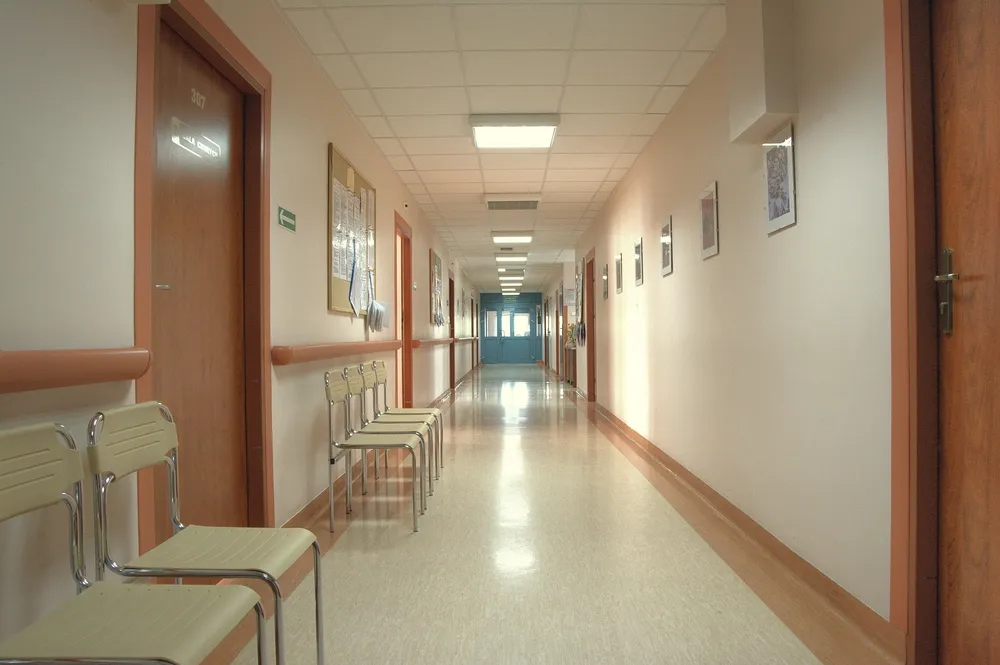Nursing No Longer a Professional Degree, Says Trump Administration
Slashing federal student loans for nurses could contribute to shortage in Wisconsin.
The Trump administration is no longer considering nursing as a professional degree, as it begins rolling out student loan changes in its One Big Beautiful Bill Act.
That means getting financial help to complete advanced degrees in nursing and other health care professions could become more difficult at a time when Wisconsin is facing a shortage.
Under the U.S. Department of Education’s new definition of professional programs, nursing, physician assistant, nurse practitioner, physical therapy and audiology programs are now excluded and must follow new borrowing limits.
Students in programs that are designated as “professional,” including doctors, dentists and lawyers, can borrow up to $50,000 a year or a total $200,000 under the new guidelines.
All other graduate students can borrow up to $20,500 a year or a total of $100,000.
The plan also eliminates the Grad PLUS program that allowed graduate students to borrow up to the full cost of attendance. In a statement, the Department of Education said the changes “place commonsense limits and guardrails on future student loan borrowing and simplify the federal student loan repayment system.”
According to several nursing groups, the rule change could have far-reaching consequences for nurses seeking advanced practice roles, leadership positions or other graduate-level jobs that are vital to the health care workforce nationwide.
Jennifer Mensik Kennedy, president of the American Nurses Association, said limiting access to funding for graduate education threatens the foundation of patient care.
“In many communities across the country, particularly in rural and underserved areas, advanced practice registered nurses ensure access to essential, high-quality care that would otherwise be unavailable,” Kennedy said in a statement.
Kim Litwack, dean of the College of Health Professions & Sciences at the University of Wisconsin-Milwaukee, said nearly all graduate students are dependent on federal financial aid because they’re cutting back on full-time jobs to return to school.
“(Physician assistants) and nurse practitioners are providing a lot of health care in this country,” Litwack said. “And if that financial aid goes away, I think we have some serious threats that are going to be facing primary care delivery and service delivery.”
The Wisconsin Department of Workforce Development predicts the state will be short between 12,000 and 19,000 nurses by 2040.
Dr. Carol Sabel is chair of the School of Nursing at the Milwaukee School of Engineering. The school offers a bachelor’s degree in nursing and a degree in psychiatric mental health for nurse practitioners.
She says Wisconsin not only has a nursing shortage, but a shortage of primary care physicians.
“Nurse practitioners work in pediatrics, they work in mental health, they work in so many roles,” Sabel said. “Now we’re just decreasing the number of students that have access to education because we’re decreasing the amount of student loans that are accessible.”
Sabel said advanced degrees in health care take about 40-45 credits, and students pay per credit. Cost varies depending on the institution, but she said nearly every student needs federal financial aid.
Knowing that Wisconsin has a shortage of health care providers, the state Legislature began adding $5 million in the biennial budget, beginning in 2022-23, to the Higher Educational Aids Board for a nurse educator program.
Students who receive a master’s or doctorate in nursing from a Wisconsin university will have their loan forgiven if they agree to teach nursing for three years.
Litwack says that program has helped, but cutting federal financial aid will still be disastrous.
“This is a little bit horrifying,” Litwack said. “I would like to remain hopeful that it was an oversight, and not an intent.”
Nursing no longer considered a professional degree by Trump administration was originally published by Wisconsin Public Radio.
If you think stories like this are important, become a member of Urban Milwaukee and help support real, independent journalism. Plus you get some cool added benefits.




















Litwack should be way more horrified.
This is pure intent.
Let’s name the elephant in the room, the jobs eliminated from the new definition of professional programs are traditionally dominated by women. This nothing more than misogynists imposing patriarchy. The fact that our healthcare system–particularly our rural system–depends heavily on PAs and nurses to provide primary care, matters not one wit.
This is another example of the toxic masculinity, not to mention toxic racism, endemic in the current administration. Who will suffer the most by this change? Rural communities as well as providers who serve peoples of color.
This has Stephen Miller’s neo-nazi, Project 2025, tiny rat paw prints all over it. Keep people uneducated and they will be easier to control.
I would like them to explain to the American public, and the rest of the world, how this makes America great again.